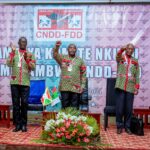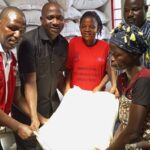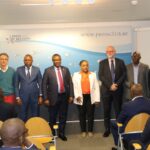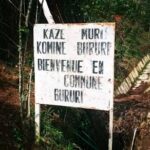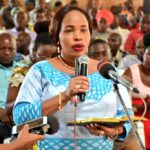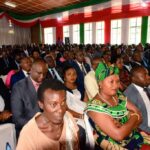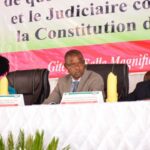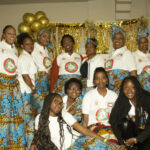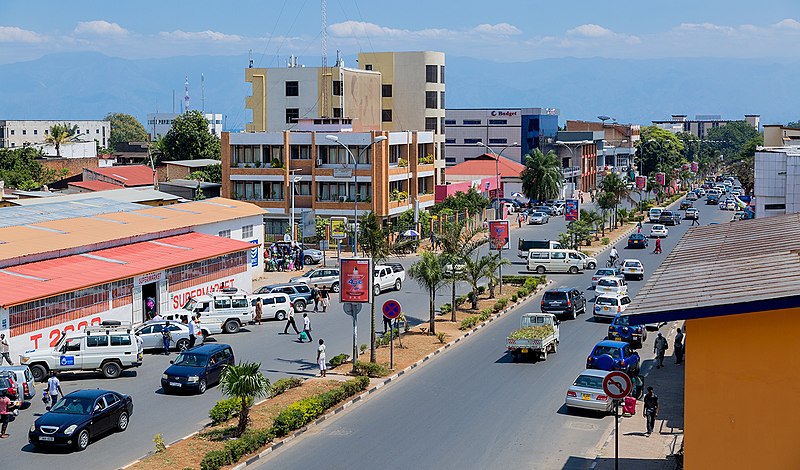
The aid community in Burundi is split over the government’s demand for international NGOs to disclose the ethnic breakdown of its local staff, as uncertainty over which organizations are still eligible to operate in the country throws development efforts into turmoil.
“This is where we draw the red line because we recruit people based on experience, skills, but not based on ethnic origin.”
— Dominique Delvigne, geographic director, Handicap International
In October, Burundian officials froze all INGO activity for three months, saying they must adopt a suite of changes or face deregistration. Most notably, officials sought to enforce a 2017 law requiring that INGOs’ local staff represent a ratio of 60 percent Hutus and 40 percent Tutsis. It is the same ratio that has been required of public offices for more than a decade under the Arusha Peace and Reconciliation Agreement, the deal that helped bring an end to the 12-year Burundian civil war. International organizations were told by the government to provide information on the ethnic mix of local staff, and given until 2021 to hit the quota.
Some INGOs declared this information, but in a country with a recent history of ethnic conflict, others worried it could end up misused. Sources told Devex that around 10 groups, including Handicap International, left the country rather than comply. Others, such as Médecins Sans Frontières, have not had their reregistration confirmed after also refusing to meet the requirement, though they are still working in the East African nation where about 3.6 million people, or a third of the population, are in need of humanitarian assistance.
INGOs suspended in Burundi amid crackdown on civil society
The Burundian government suspended the activity of most international NGOs for three months, citing failure to comply with a 2017 law — but some see it as a move to silence civil society.
Donors were divided too, with multiple INGO sources telling Devex that NGOs funded by the United States, encouraged by the U.S. aid agency, were more likely to provide ethnic percentages than their European counterparts. The U.S. Agency for International Development was unable to comment due to the U.S. government shutdown.
“Most organizations that are based in the U.S. or financed by the U.S. were told basically that ‘for us, positive discrimination is not a problem — you do anything to get yourself reauthorized again,’” a European diplomat in Burundi said.
By contrast, the diplomat said that some European governments warned their INGOs they would likely no longer be considered for future contracts in Burundi if they provided authorities with ethnic information. A spokesperson for the Belgian foreign ministry said it had made clear to the roughly 20 Belgian NGOs it supports that providing ethnic information at an individualized level would be a red line. None of them crossed it.
At the European Union level, however, the diplomat noted with regret that the delegation in Burundi never received the requested operational guidance from headquarters in Brussels about what to tell INGOs. “There was never a paper saying, ‘from now on you are not allowed to give EU money to INGOs who give statistics [or] anything like that,’” the diplomat said.
A European Commission spokesperson said: “We are closely monitoring the situation together with the international partners and we are awaiting further clarifications from the authorities.”
From the outset, INGOs say there were conflicting messages from the government, with some ministries less likely to insist on the need to provide ethnic data. Some INGOs submitted an alternative document, outlining the systemic injustices faced by some ethnic groups. “The document stated that the solution is not imposing quotas, but rather [giving] everyone access to a good education, or trying to empower public recruitment centers to help the unemployed to find jobs,” a food security specialist working in Burundi said, on condition of anonymity due to the sensitivity of the situation.
In early January, AFP reported an interior ministry source saying that 84 of 140 INGOs in Burundi had been reinstated after complying with the law. At the same time, organizations such as Handicap International and Avocats Sans Frontières announced their departure.
Dominique Delvigne, geographic director at Handicap International, known internationally as Humanity & Inclusion, told Devex that his organization did not know staff members’ ethnicities, but “we received a clear answer that it’s a condition for the government that if we do not share figures [and] quotas that we cannot staff our operation.”
Get development’s most important headlines in your inbox every day.
Haut du formulaire
Subscribe
Bas du formulaire
He said the organization was worried the information could be misused. “There was no negotiation possible with the government on that issue [and] we explained that this is where we draw the red line because we recruit people based on experience, skills, but not based on ethnic origin,” Delvigne said.
Some INGOs have few local staff themselves as they prefer to partner with local NGOs, but with 105 local staff on its roster, Handicap International said dismissing its local team would completely change its operational modality.
Venant Ntabona, chargé d’affaires at the Burundian embassy in Brussels, said the changes were designed to ensure international actors are not above the law. He cited the 2005 constitution, and the Arusha agreement, which set the ratio for certain posts in public administration. However, INGO representatives maintain the ratio only then applied to specific categories, such as public companies, the national assembly, and government ministries.
An ongoing battle
In 2016, the EU halted direct financial aid to the Burundian government amid human rights concerns and instead directed assistance through INGOs, although other donors have continued to work directly with government.
“We’re getting closer and closer to the limit where normal cooperation stops.”
— A European diplomat in Burundi speaking on condition of anonymity
“Everybody has been talking about the ethnic side, but there has also been a financial control side to this,” the European diplomat said. “[The authorities] really want to control the flow of money from donors and if possible get their hands on it, so this is most likely not going to end.”
Under the 2017 INGO law, 30 percent of a project’s budget must first be deposited in the central bank. That requirement was abandoned by officials orally in a meeting, but the law was not changed, the diplomat said, “which means that at any time they can come back to it.”
INGOs must also sign a cooperation agreement with the ministry of foreign affairs, and any relevant ministries.
A briefing prepared by an NGO for the European Commission and European Parliament suggests the crackdown could be an attempt by the government to expel organizations working on sensitive topics such as human rights, in light of a recent damning report from the United Nations Commission of Inquiry on Burundi, and the International Criminal Court’s inquiry into alleged crimes against humanity.
Amid the uncertainty, the EU is trying to roll out a €95 million ($107.98 million) resilience initiative on access to energy, rural nutrition, and health services. Work on rural development was contracted and due to begin in the fall of 2018 but was delayed when all INGOs were suspended. All the organizations set to work with the EU were eventually reauthorized, but long-term development planning is increasingly difficult.
“We’re getting closer and closer to the limit where normal cooperation stops and the only actions available are humanitarian actions,” the diplomat said.
But Ntabona argued that in recent decades “not one country has evolved thanks to [development aid]. It’s just the little crumbs that they give us to keep us in this situation.” He said Burundi receives more aid than it needs for good governance issues, but not enough for energy infrastructure. Unless donors align behind the priorities in the government’s 2018-2027 National Development Plan, Ntabona said, they should “keep their money.”
Editor’s note: Devex correspondent Vince Chadwick reported from Brussels.
Source : https://www.devex.com/news/turmoil-for-international-aid-groups-in-burundi-over-ethnic-quotas-94125
By Vince Chadwick, Christin Roby // 21 January 2019

